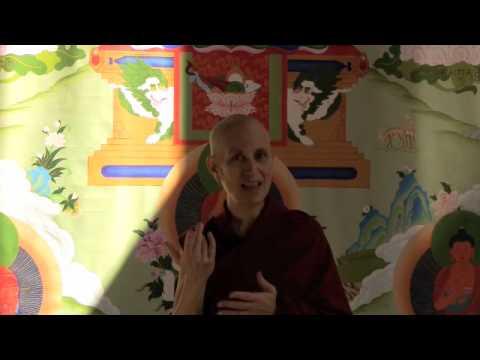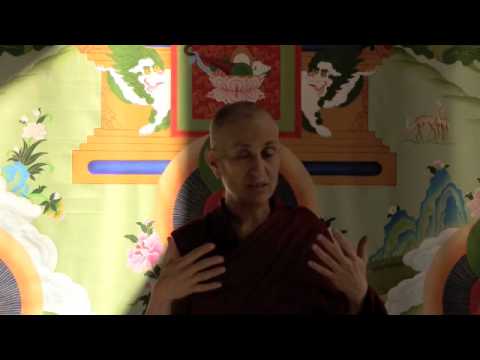A kind heart as our motivation
I think it’s very good for all of us to remember the reason why we’re here at the Abbey and what the most important thing is for us and that’s to develop a kind heart. A kind heart is something that’s shared by people of all religious faiths. Or the aspiration for a kind heart is. I think we’re all working at it. His Holiness the Dalai Lama talks about the common qualities between all religions. It’s a kind heart and compassion, ethical conduct. These things are shared by all the different religious faiths, and we’re all in the same boat working to develop ourselves internally in that way. That’s a big way in which all religions come together. Even people who aren’t religious, the whole idea of secular ethics and ethics based on just human need as living beings for kindness and compassion. The fact that when we came into this world, we were met with kindness and compassion. The mere fact that we’re still alive shows that because we were unable to take care of ourselves. Even though they may have spanked our bottom when we first came out, it was done with an attitude of kindness and compassion for our own health and our own benefit.
A kind heart is something we all aspire for, but it’s something that we have to work at developing too. We have it naturally, but we also have to work. There are specific techniques and ways to train ourselves to think that really encourage us to develop a kind heart and to develop forgiveness. That’s something that we’re quite interested in in the Buddhist teachings: there are instructions about how to actually develop a kind heart. And I know for myself personally that was really important because I grew up hearing, “Love thy neighbor as thyself,” but I didn’t know how to do it. People said, “Do that,” and it sounded great, and I wanted to do it, but how in the world do you do that? Especially when you’re angry. It’s like, “How do I love somebody like myself when I’m ticked off at them?” And went, “No, no, no, no. It’s their fault.”
I think that the techniques on how to work with my own anger: those are extremely helpful. How to focus the mind to really see others’ good qualities and see the benefits of kindness and to see how completely dependent we are on the kindness of others and really appreciate them for that. Yes? Using all these different ways and methods to do that in our own practice and trying to live it in our daily lives. Some days we’re more successful, and other days we fall on our face, don’t we and we get upset. We pick ourselves up. We sit down. “Why am I upset?” Try and let go of it and relax the mind and come back and develop a loving attitude. We just keep doing it over and over and over again. That way it becomes more of a habit slowly over time. It becomes much more of a natural reaction and a habit.
Venerable Thubten Chodron
Venerable Chodron emphasizes the practical application of Buddha’s teachings in our daily lives and is especially skilled at explaining them in ways easily understood and practiced by Westerners. She is well known for her warm, humorous, and lucid teachings. She was ordained as a Buddhist nun in 1977 by Kyabje Ling Rinpoche in Dharamsala, India, and in 1986 she received bhikshuni (full) ordination in Taiwan. Read her full bio.


